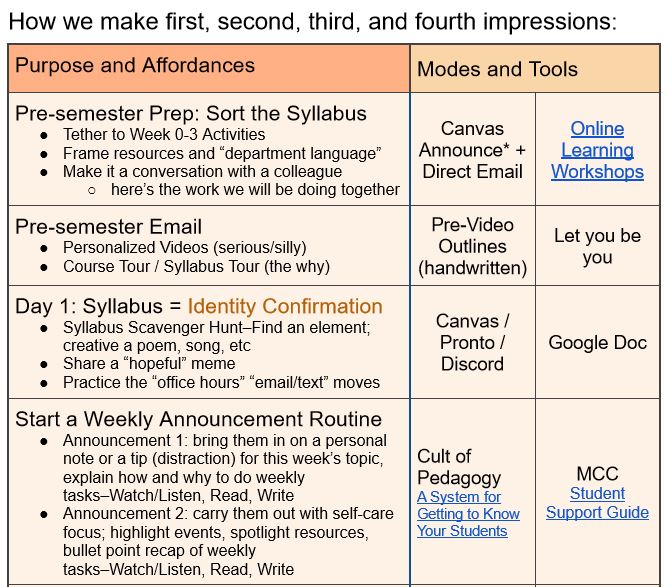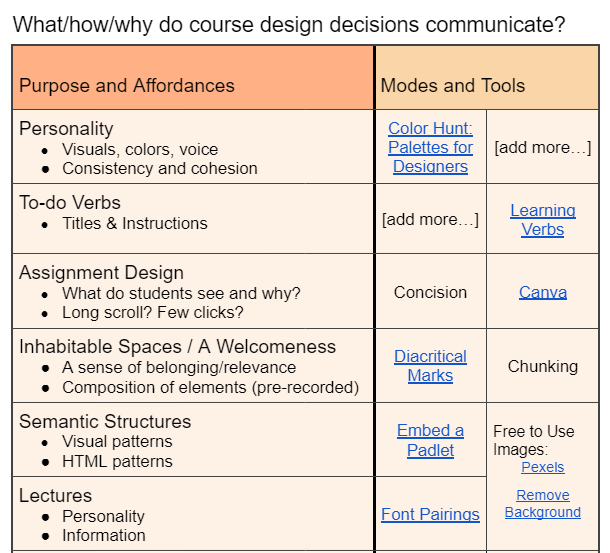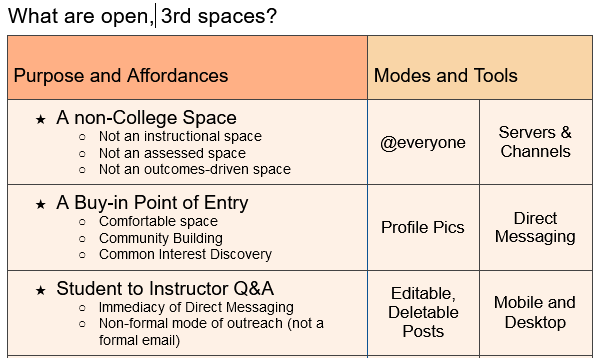We had a really rich convo yesterday about concepts of voice, concepts of bias, and concepts of templates by which we mean reproducible structures, devices, or tools that shape our thinking for us, or with us. At one point in the conversation, we got here:
“We’ve created an academic voice, and we’ve imposed structures and processes and practice on our students, so that by the end of their training, they write with an academic voice. That’s ideological. That’s a system that takes in what students say–and how students would on their own arrange and express that–and mutes, mars, and shapes their voice. By the end, we all speak in this certain way when we write in this space. That’s not something ChatGPT is introducing; that’s something that has defined and does define an English class and an English curriculum.”
To listen to our full convo, check out the Zoom recording or the podcast
All content shared and perspectives we discussed are collected in a Padlet.
Our next discussion will be April 12th, where we will discuss how our experiences reading in different modalities form us (as thinking, writing humans) and assist metacognition. We will be sharing from “Letter 3” & “Letter 4” in Maryanne Wolf’s Reader Come Home. You do not have to have read the book to participate in the conversation. Hope to see you then to explore Attention and Thinking-about-Thinking with new writing technologies.




